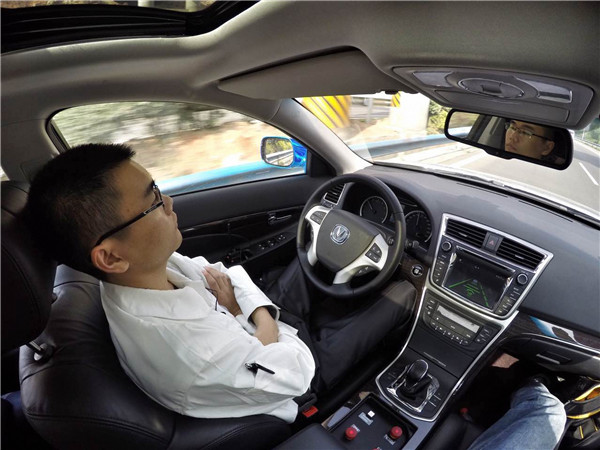 |
|
Although the announcement cleared the air with regard to liability, an overall lack of rules and regulations for autonomous cars is frustrating industry insiders. |
What concerns Wang is the universal problem with replacing human drivers with robots: a driverless car can avoid hitting other objects, but it cannot stop a manually driven car from crashing into it. If an accident occurs-and it happened a lot during Google's road tests, according to the company's own accounts-it will be difficult to determine who bears responsibility.
The debate about whether manufacturers should shoulder the liability raged for several years, hindering the commercialization of driverless cars. The problem was solved last year, when Volvo, Google and Mercedes-Benz announced that they will accept full liability if their autonomous vehicles cause a collision.
Although the announcement cleared the air with regard to liability, an overall lack of rules and regulations for autonomous cars is frustrating industry insiders.
"The US risks losing its leading position due to the lack of federal guidelines for the testing and certification of autonomous vehicles," said Hakan Samuelsson, the CEO of Volvo in an October report in Digitaltrends, a technology news and information website.
"Europe has suffered to some extent by having a patchwork of rules and regulations. It would be a shame if the US took a similar path," he said.
After years of lobbying by automakers, four US states-California, Nevada, Florida and Michigan-have decided allow autonomous vehicles to be tested on public roads.
Despite being a latecomer in the field, Chinese decision makers seem to be much more active in giving green lights.
In November, Shanghai opened a 3.6 km section of road for testing self-driving vehicles-the first such zone in China. A short time later, the Ministry of Industry and Information Technology approved similar test areas in the municipalities of Beijing and Chongqing and in the provinces of Hebei and Zhejiang.
At the 2016 Beijing Autonomous Driving Panel Debate in April, a senior official at the Ministry of Transport said the country is conducting preliminary studies into an intelligent transportation-control network and a pilot program will be undertaken in the near future.
"The government is positive, but cautious, about the development of the technologies. The country is establishing a specialized testing environment," said Wang Xiaojing, chief engineer at the ministry's Institute of Highway Research.
According to Yu, from ResearchInChina, official approval and encouragement could make all the difference for homegrown auto companies: "In China, the policy problem could be solved fairly easily if the government decided to develop the industry. That could give Chinese companies a real advantage."
